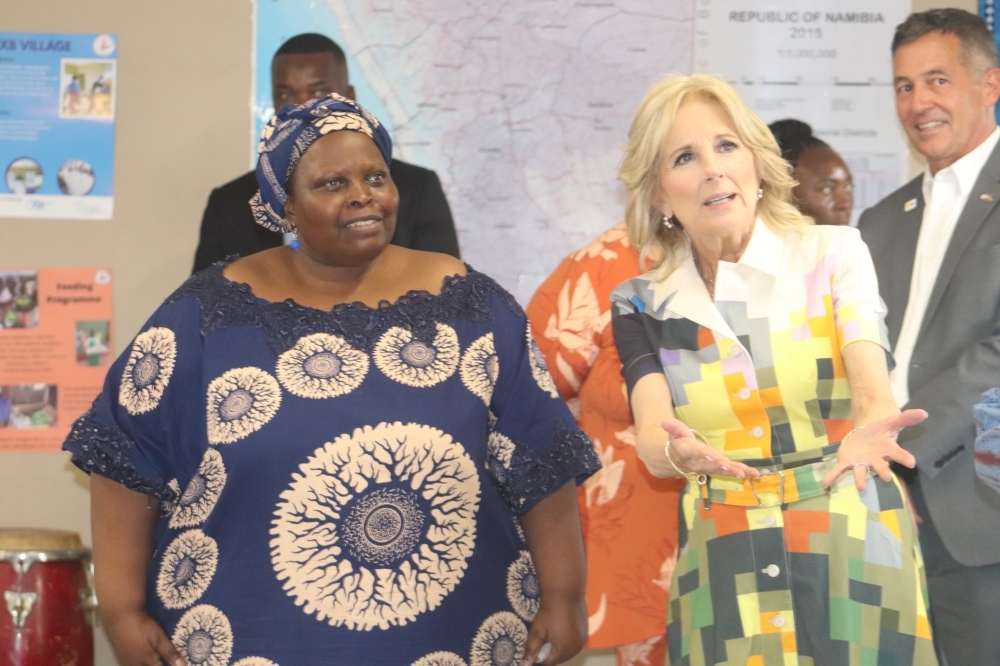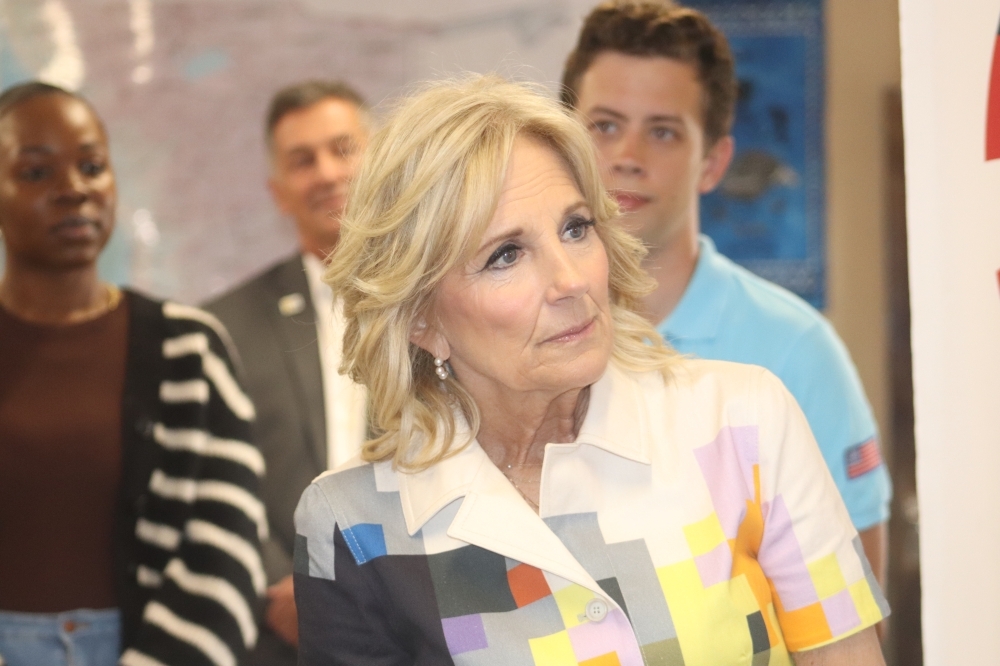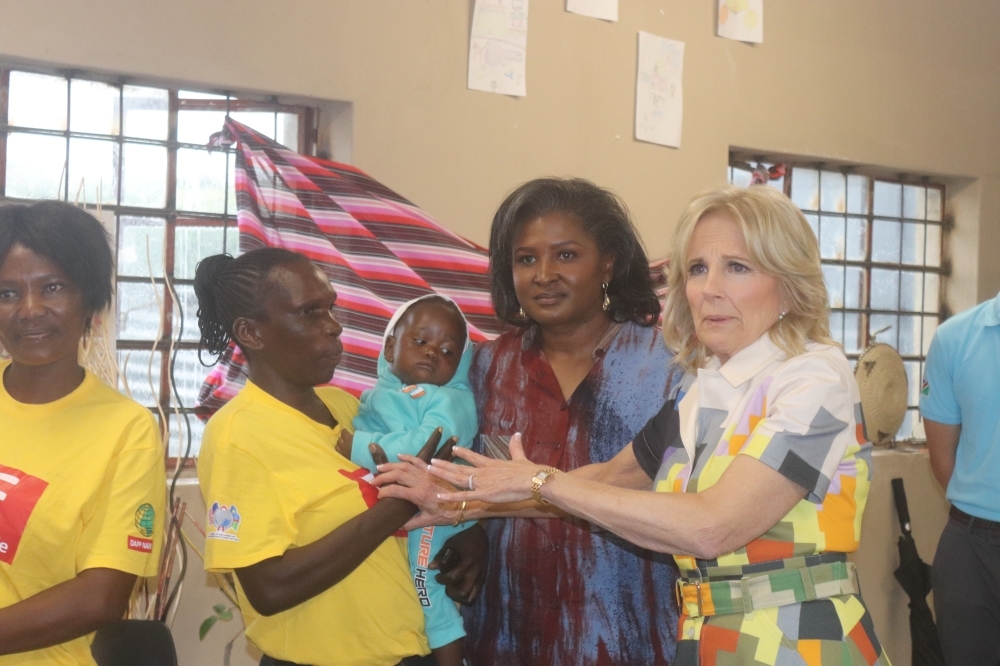Bringing hope
Each one reach one
Through Pepfar, the United States supports projects like the Hope Initiatives Southern Africa - Namibia to reach people living with HIV/AIDS.
On 23 February, the First Lady of the United States of America paid the Hope Initiatives Southern Africa - Namibia (Hisa) a courtesy visit in Okahandja Park.
“For me, Jill Biden’s visit is an honour. It leverages us and gives us visibility,” Patricia Sola, the founder of the initiative, said. The United States President Emergency Plan for AIDS Relief (PEPFAR) currently runs Hisa.
“With our strong partnership, Namibia has slowed the spread of HIV and is helping young women and girls reach their full potential,” Biden in a tweet after her visit to the project.
Sola empowers the community through various programmes, which include the Pepfar Dreams (Determined, Resilient, Empowered, AIDS-free, Mentored and Safe) project and the Agents of Change project. “We are united around common goals that make the programmes run so well,” she said.
Agents of Change looks to empower men with HIV/AIDS. Peter Mayavelor has been part of the programme since he was 29. His role as a councillor involves going out in informal settlements and informing men about their rights as victims of gender-based violence (GBV).
“I inform them that as men we also have the right to report women who abuse us,” he said.
For Ilena Brave Shoombe, the Dreams project has helped her establish her business, Pass-Not Trading Enterprise.
“Dreams is changing a lot of lives as it takes us off the streets,” Shoombe, who has been a part of the project since 2019, said.
It empowers people with HIV/AIDS by providing them with the right start-up equipment to run their businesses.
Hisa was founded in 2002 and started as a soup kitchen in the Okahandja Park community. Sola started the initiative after her brother died of AIDS in 1997.
The social worker left Namibia to complete a master’s degree in child welfare at the University of East Anglia in Norwich, London, and returned in 2003.
“We started simply with a soup kitchen and dragged our children along to help,” Sola said, adding that her children have become leaders in the community to help others.
While the programme has expanded significantly, its biggest need remains funding. Hisa runs in Groot Aub, Vyf Rand and in Tsandi, which is in the Omusati Region. Currently, the programmes outside Windhoek have no infrastructure to operate from and the hope remains to construct new infrastructure. Every year, Hisa’s after-school programme takes in 50 youths who are direct beneficiaries and reaches 200 to 250 indirect beneficiaries.
Pepfar was established in 2003 and is operating in Namibia in conjunction with the Namibian government, civil society and the private sector. In Namibia, the organisation has contributed over US$1.1 billion. Its aims are to identify individuals with HIV/AIDS and ensure they get treatment and remain on it.
Furthermore, the organisation hopes to establish Namibia as the first African country to achieve an “AIDS-free generation”, according to the Pepfar website.





Comments
My Zone
No comments have been left on this article